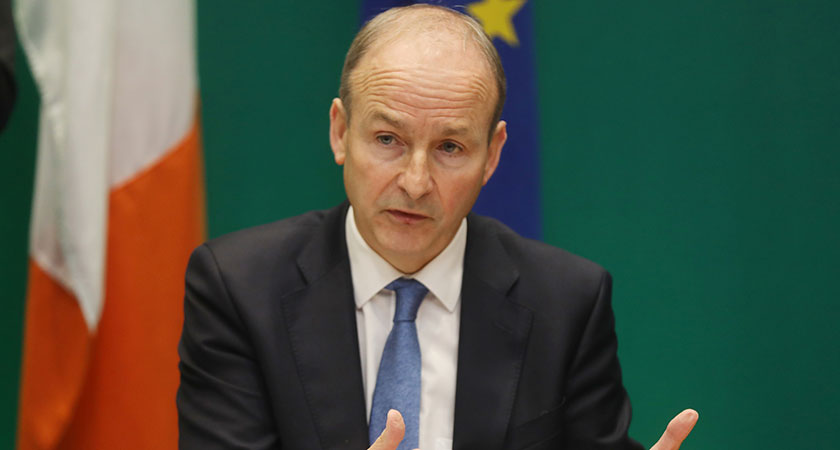THE Irish Government is working on new legislation designed to change the rules around how and when it deploys its defence forces overseas.
Currently a Triple Lock system is in place, which requires all deployments to be approved by Government, supported by the Dáil and mandated by the United Nations.
This week Tánaiste Micheál Martin, who is Ireland’s Minister for Defence and for Foreign Affairs, revealed that the government is now looking at overturning that rule, which allows the UN to “veto” Ireland’s sovereignty in making decisions on peacekeeping missions.
 Tánaiste Micheál Martin
Tánaiste Micheál MartinSpeaking in the Dáil yesterday, during a debate on the Consultative Forum on International Security Policy Report, Mr Martin said: “As matters stand, the legislation governing the despatch of contingents of the Defence Forces for overseas peace support operations ensures that these may only take place where that deployment is approved by the Government, approved by Dáil resolution if the proposed deployment is more than 12 personnel, and that the operation in question is mandated or authorised by the UN.
“In effect, this ‘Triple Lock’ system hands the five permanent members of the Security Council a veto over our national sovereign decision to deploy troops to peacekeeping missions as we see fit.”
 The Government is preparing legislation to change the protocols around the future deployment of the Defence Forces overseas, thereby removing the Triple Lock
The Government is preparing legislation to change the protocols around the future deployment of the Defence Forces overseas, thereby removing the Triple LockHe added: “Of course, as we saw over the course of the Forum, there is no single consensus over how to proceed with the Triple Lock.
“But we saw ample evidence of other options on how to allow agility and responsiveness while ensuring our actions comply with the highest standards of international law.
“It would therefore make sense, I believe, to amend our existing legislation in a manner which would allow us to respond to crisis situations with more agility, and where in making these important decisions, we are not surrendering our sovereignty.”
Mr Martin confirmed that he has “instructed officials in the Department of Defence to prepare legislative proposals without delay that would govern the future overseas deployments of our Defence Forces”.
He explained the options that such new legislation would provide, while confirming that the move would “remain fully consistent” with UN laws.
“These [proposals] could, for example, allow us to despatch Defence Forces personnel to multilateral missions overseas where these are organised by a regional organisation such as the European Union or African Union, or where the host country is requesting such support from the international community,” he explained.
“While these proposals may not necessarily always include a role for the UN Security Council, they will of course remain fully consistent with the principles of the UN Charter and international law,” he added.
“By making this change in the future, we would be removing the veto power of Security Council members over Ireland’s engagement, while safeguarding the essential link with international law and good governance.”
 Tánaiste and Minister for Defence, Micheál Martin reviewed the men and women of 123rd Infantry Battalion ahead of their deployment to Lebanon this month
Tánaiste and Minister for Defence, Micheál Martin reviewed the men and women of 123rd Infantry Battalion ahead of their deployment to Lebanon this monthThis month Irish peacekeeping soldiers of the 123rd Infantry Battalion head to Lebanon on a mission as part of the United Nations Interim Force in Lebanon (UNIFIL).
Commanded by Lieutenant Colonel Stephen Mac Eoin, the soldiers have been in training for the mission for the past two months.
There are 343 personnel being deployed, 334 who are Irish and nine who are Maltese. Twenty of them are female.
For 86 soldiers it will mark their first overseas peacekeeping mission.
They are taking over from colleagues in the 122nd Infantry Battalion of the Irish Defence Forces.

